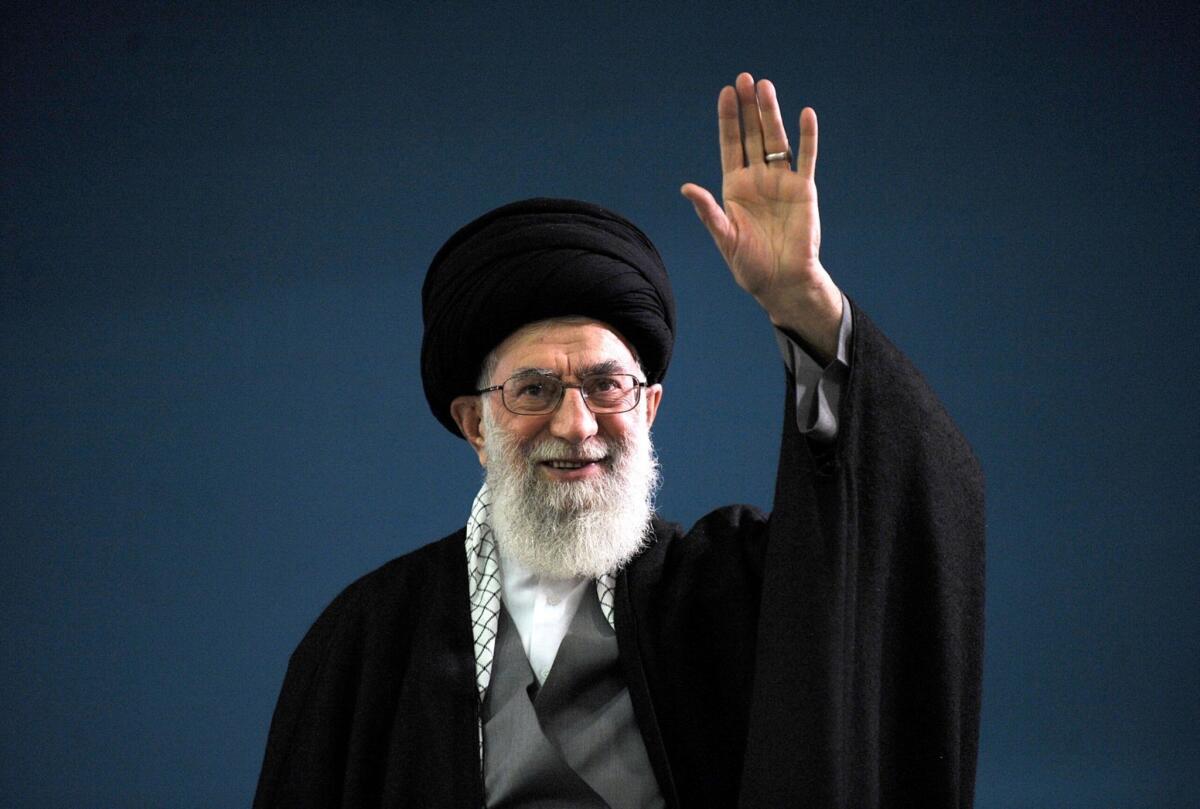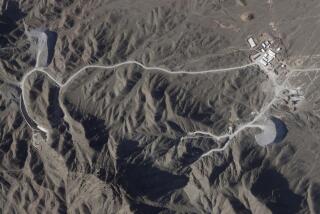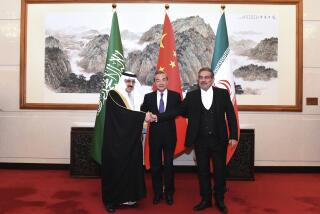Iran’s supreme leader says nuclear talks will ‘lead nowhere’

TEHRAN -- Iran’s supreme leader, Ayatollah Ali Khamenei, expressed deep skepticism Monday about the next round of nuclear negotiations with world powers, even as Tehran’s delegation headed to Vienna for the potentially decisive talks.
The nuclear session will “lead nowhere,” Khamenei, who has the final say on all matters of state here, declared in remarks carried in official media.
The supreme leader nonetheless signaled his support for the initiative, the foreign policy centerpiece of President Hassan Rouhani, who took office last August.
“I’m not optimistic about the nuclear talks, but not opposed to them either,” Khamenei said, according to Press TV, Iran’s English-language satellite news channel.
Khamenei also took a verbal broadside at Washington, proclaiming that Iran will “never succumb to the bullying and blackmailing of America.” Just last week, large crowds marking the 35th anniversary of the Islamic revolution repeated chants that Iran would never surrender.
The new round of nuclear talks involving Iran and six world powers -- the United States, Russia, China, France, Great Britain and Germany -- is scheduled to begin Tuesday. The session is meant to build on an interim, six-month deal crafted late last year
The supreme leader’s comments come as a number of high-ranking Iranian officials have downplayed the possibility of a breakthrough in Vienna. Most observers agree that the talks will be difficult.
Khamenei’s downbeat assessment seemed intended to serve dual purposes. He appeared intent on lowering expectations among a public eager for a breakthrough. But he was also keen to mollify hard-liners fearful that Tehran is on the verge of making major concessions to global powers.
Likewise, Rouhani has to navigate a delicate political balance. He must assuage his moderate and reformist supporters, who generally back his controversial rapprochement with the West, while also reassuring skeptical conservatives.
In November, Iran struck a landmark interim deal with world powers to constrain its nuclear program in exchange for limited relief from U.S.-backed international sanctions that have ravaged the economy. That six-month accord raised hopes that the next round of talks would yield a long-term agreement defusing a decade of tension about Iran’s nuclear efforts and ending much of the punishing sanctions regime.
Many ordinary Iranians view the lifting of sanctions as crucial to moving Iran out of its economic doldrums. Among other effects, the sanctions have made it difficult for Iran to sell oil, its major export, and to gain access to international banking networks.
En route to Vienna on Monday was a team of Iranian nuclear negotiators, including Iran’s foreign minister, Mohammad Javad Zarif. He was scheduled to meet Catherine Ashton, the European Union’s foreign policy chief, for a working dinner, according to media reports.
Tehran has always maintained that its nuclear program is strictly for peaceful purposes, such as energy generation. But U.S. officials suspect that Iran is seeking the ability to make nuclear weapons.
ALSO:
Ethiopian plane hijacked to Geneva by co-pilot
U.N. panel accuses North Korea of crimes against humanity
Venezuela braces for protest led by fugitive; U.S. diplomats expelled
Mostaghim is a special correspondent in Tehran and Sandels is a special correspondent in Beirut. Times staff writer Patrick J. McDonnell in Beirut contributed to this report.
More to Read
Start your day right
Sign up for Essential California for news, features and recommendations from the L.A. Times and beyond in your inbox six days a week.
You may occasionally receive promotional content from the Los Angeles Times.






